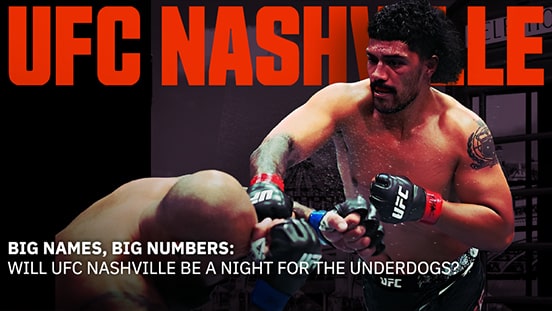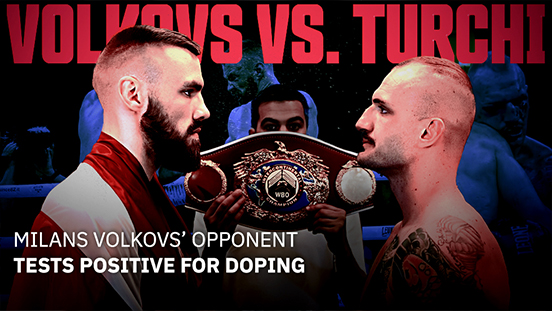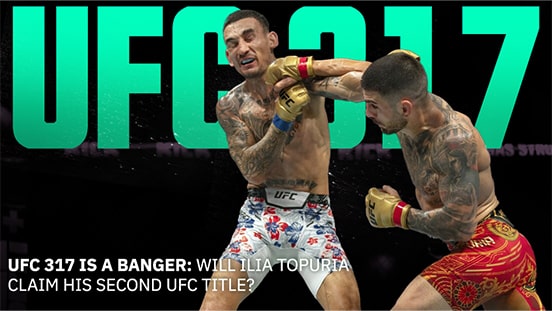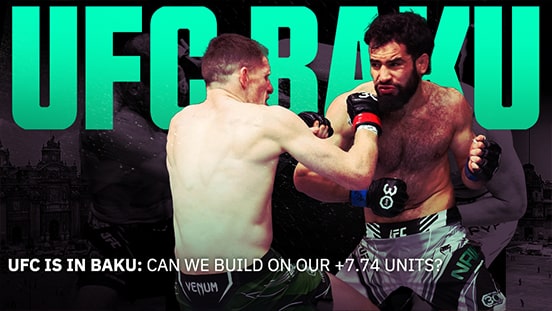Matīss Zaharovs, a Latvian fighter raised in Ireland, doesn’t fear challenges: from overcoming bullying in his youth to now making his mark in the Professional Fighters League (PFL), he’s managed to come out on top no matter what.
Matīss made his PFL debut against rising star Lewis McGrillen on June 8, 2024. Despite his efforts, McGrillen, who has an impressive track record with multiple KO/TKO victories, outlasted Zaharovs and secured a decision win after three rounds. Though Zaharovs displayed solid defense throughout, McGrillen’s technical skill ultimately won.
This fight, though a loss for Zaharovs, showed his potential in the PFL and set the stage for his future in the promotion. Set to fight Brian Hyslop on September 28 at PFL Europe, Matīss offered us some insight on what it’s like to prepare for another one of his career’s biggest fights.
How was growing up in Ireland? Did you ever have issues fitting in?
I moved here when I was 6. I had limited English, only knew a few words. As a foreign kid, at the time, it was a bit difficult because I was susceptible to a lot of bullying—which did happen as I was growing up. All throughout primary and secondary school.
That was a huge problem for me, growing up there. It was verbal and got physical if I ever tried to say anything back. This is when I found martial arts and picked up fighting. I started kickboxing and kept showing up to classes, and noticed I was getting better and better. People kind of knew I started doing this. I started competing, small little tournaments, when I was 15-16—and I won.
Just this transformation, this period when I started to do something, the bullying started to die down. I was able to stick up for myself more. If something big would kick off, I wouldn’t run away. Before, I wouldn’t really stand there and fight; I’d just run. I finally knew how to defend myself, how to stand my ground. I was ready to swing—I had the tools.
You do gain a lot of confidence. You don’t look down on the ground walking past people. You keep your head up high, shoulders straight.
About your upcoming fight against Brian Hyslop on Saturday—how’s the physical prep feel?
Training schedule is Monday to Saturday. Some of them are twice a day. Always attend the morning class at 12:00, some of the days even in the evening. I’m eating good, keeping protein and fat content high, powering on carbs, filling up. Most importantly: keeping on top of not getting injuries.
It’s so easy to get injured in this game. You slip or fall the wrong way, and bust your elbow or something, so I always train in a safe environment. It’s important to not get concussed either. Sometimes you train with guys who want to take your head off, and then you can’t think straight for a week.
Mentally, prepping for a fight must be challenging as well.
Of course. You’ll never be 100% every single day. Some days you’re going to be the hammer, and others you’ll be the nail. You just have to keep showing up. It’s like that. I’ve noticed this over the years. The main thing is to just show up and keep learning. Your body needs to move. You don’t always have to go 100% every day—your body is going to deteriorate and you’ll burn out. You’ll become prone to injuries and start questioning yourself, like, “Why do I feel weak? Why am I not performing here?”
When I train, if I get smashed by someone I don’t normally get smashed by, or if it’s a rather even fight, on my way home, I go back and think about it. I wonder what happened. I look back on what I ate the previous day, how my nutrition was, how I trained. I’ve trained so much and have felt so many different ways that, by now, I already know when I feel low and my body needs rest.
I don’t take losses to heart. Before, I was an amateur, and I questioned everything. I also ran to blame it on something, someone—anyone besides myself. Then, as I got older and more mature, took a step back, I could dissect the problem and understand it, rationalize it. You get smarter with age. Well… most people get smarter with age. [laughs]
What would you say are your most notable strengths now?
My strongest suit would be my distance control. I have also developed good wrestling. I’m athletic. And striking, I’d say. Since I started off doing kickboxing, I feel like I’m all-rounded.
I wouldn’t say I necessarily have any weaknesses that are that major. I had some holes in my game which I’ve fixed up from my previous losses—such as my wrestling. That was definitely an aspect I was weaker in before. Improved that big time after my first loss, because I went up with a wrestler guy. That would’ve been a weakness, but is no longer.
This won’t be your first PFL fight. How does it feel to go back in?
It’s a mix of excited and nervous, but mostly just excited, because I’m confident. I’m a bit taller than my opponent, Brian, and have longer range. I feel like he’ll find it difficult getting in on it, since I do have good distance control. It is hard to get in on me. I think he’ll panic because he won’t be able to land anything.
You had denied a fight before. What happened there?
They announced the fight before any contracts were signed, while it was still a discussion whether to take the fight or not. When you sign a contract, you’re legally, on paper, confirmed to be fighting that match. It’s like court—a written agreement is more powerful than a verbal one. It will hold up better.
I’d just finished a fight, too. I didn’t know if I wanted to take a PFL fight at that time yet, so I opted out.
And you’ve mentioned before that it was hard to find fights for some time. How come?
Yeah, my manager said it was tough in our region. I didn’t want to sign any big promotion yet. Now, after an appearance in the PFL, I never seem to have that problem anymore… [laughs]












